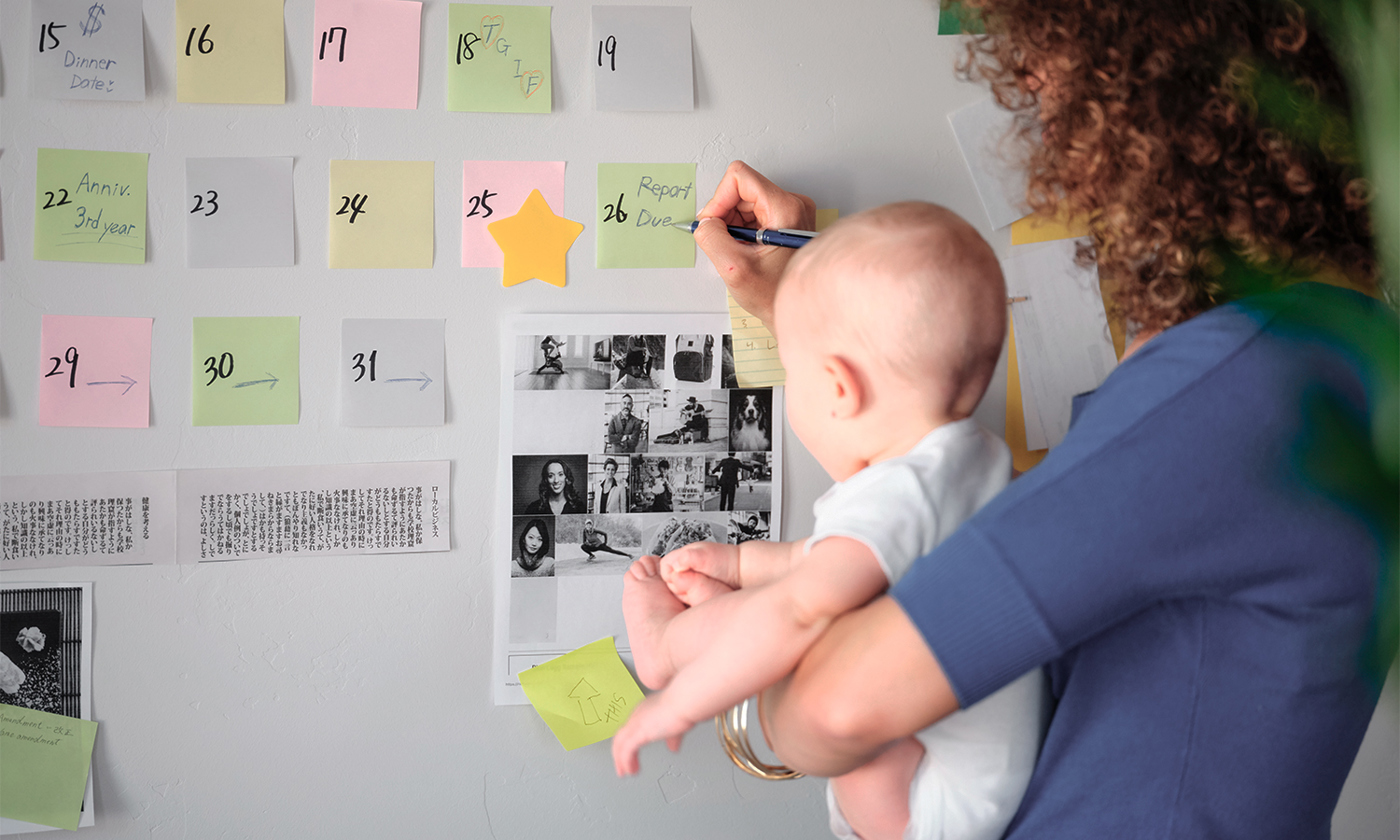Like what you see?
Sign up to receive more free parenting advice.
Thank you for subscribing to our newsletter!
Lifestyle

Credit: iStock.com/RichLegg
Many working parents are struggling with the daily juggle of maintaining work and home and it is taking a toll on their physical and mental health as well as their relationships.
New data confirms that the challenges are real. A large, long term study from researchers at The University of Melbourne called The Life Patterns Project has tracked two cohorts of Australians for many years. One group left school in 1991 (now tracked for almost thirty years), while the other that left in 2006 (now tracked for fifteen years).
With such a strong data set at their disposal, researchers can confirm a number of previously held notions about the disparity between the lives of men and women when they become parents.
We’ve long known that mothers tend to take on many of the practical, child-related tasks, but the data shows they are also taking on responsibility for managing the family’s social relationships.
Qualitative data gathered as part of the study suggests women are not only playing this role for themselves and their children, but for their partner as well. Additionally, when a mixed gender group from the family gets together, it’s still the woman who organises the social gathering.
Becoming the family’s social scheduler is just one example of the mental load well known to be a problem for mothers of young children. But when the tasks extend beyond organising doctor’s appointments, buying birthday and Christmas presents and organising children’s play dates to include running the social lives of all the household’s adults, it’s no surprise mental load has an impact on the wellbeing of Australian mothers.
While 50% of men and women in the younger cohort (entering their thirties – the age many start having a family) said they could balance parenting with their work and social lives, digging deeper showed there was more going on.
“When we asked them if they felt tired, worn out or exhausted from meeting the needs of their children, 76% of women said yes while only 53% of men did so,” says Dr Jenny Chesters, a Research Fellow at the Youth Research Centre, Melbourne Graduate School of Education. Dr Chesters is working on the longitudinal Life Patterns Project focusing on youth transitions and the link between education and work.
When we asked them if they felt tired, worn out or exhausted from meeting the needs of their children, 76% of women said yes while only 53% of men did so.Dr Jenny Chesters
Stay up to date with the latest news and articles from First Five Years
Thank you for subscribing to our newsletter!
How workplaces can help or hinder
Dr Chesters says many of the challenges for parents with young families likely stem from the issue that the workplace hasn’t changed even though families have.
“Some of today’s parents have high ideals about sharing the load equally with both working part-time or using flexi time, but their workplaces don’t allow for that. This means even the men and women who are trying to make this more equal are finding that they can’t,” she says.
Dr Chesters notes too that part-time roles aren’t always the solution.
“Often people in part-time roles end up working extra hours at home because the work comes home with them.”
The Life Patterns Project has also found that making change to bring about a more balanced life isn’t always easy.
“There’s a disconnect between what people want and what they can do given their need for a secure income. I’ve been interviewing people in the older cohort and two men told me they gave up their dream job for something less satisfying but permanent,” Dr Chesters says.
When asked about the statement: ‘I feel that I do much more of the share of parenting than my partner’ the results were telling:
“Only 3% of men agreed with that statement, but 64% of women. Women are carrying this load: that’s a huge difference,” Dr Chesters says.
It’s no surprise therefore, that many women are dissatisfied with current arrangements.
“When asked if they were satisfied with how childcare tasks were divided, 91% of men said they were, yet only 64% of women said the same. There is a strong gender difference,” she says.
Keeping a social life going after parenting
Maintaining a social life with young children can be challenging. Qualitative data attained from a small cohort within the larger study showed that if it happens, it’s usually down to the woman.
The survey showed that those who found it easiest were the ones with support from extended family, particularly parents or in-laws.
“Some who have a lot of support from their parents have been able to maintain a social life in the sense that they can go to the gym a couple of times a week or meet up with their friends,” Dr Chesters says.
“You can’t overstretch your family, but if your parents and in-laws realise how important it is for you to maintain those social contacts and are supportive of it then that is good.”
Although the statistics are concerning, there is some good news. Researchers found that those who felt supported outside the home had managed to tap into local support groups – such as parent’s groups – early on.
“For women suffering from post-natal depression, local support groups have been shown to be very helpful, and a source for making new friends. That’s important, because when you go on maternity leave, especially if it’s extended, you tend to be more distant from your work colleagues who have been a big part of your life till you have children,” Dr Chesters says.
Nonetheless, Dr Chesters emphasises it’s important for our wellbeing to have friends in all stages of life and situations.
“Your support group needs to include people without children as well. Sometimes you need to talk about something completely different to parenting; you need a break from it,” she says.






